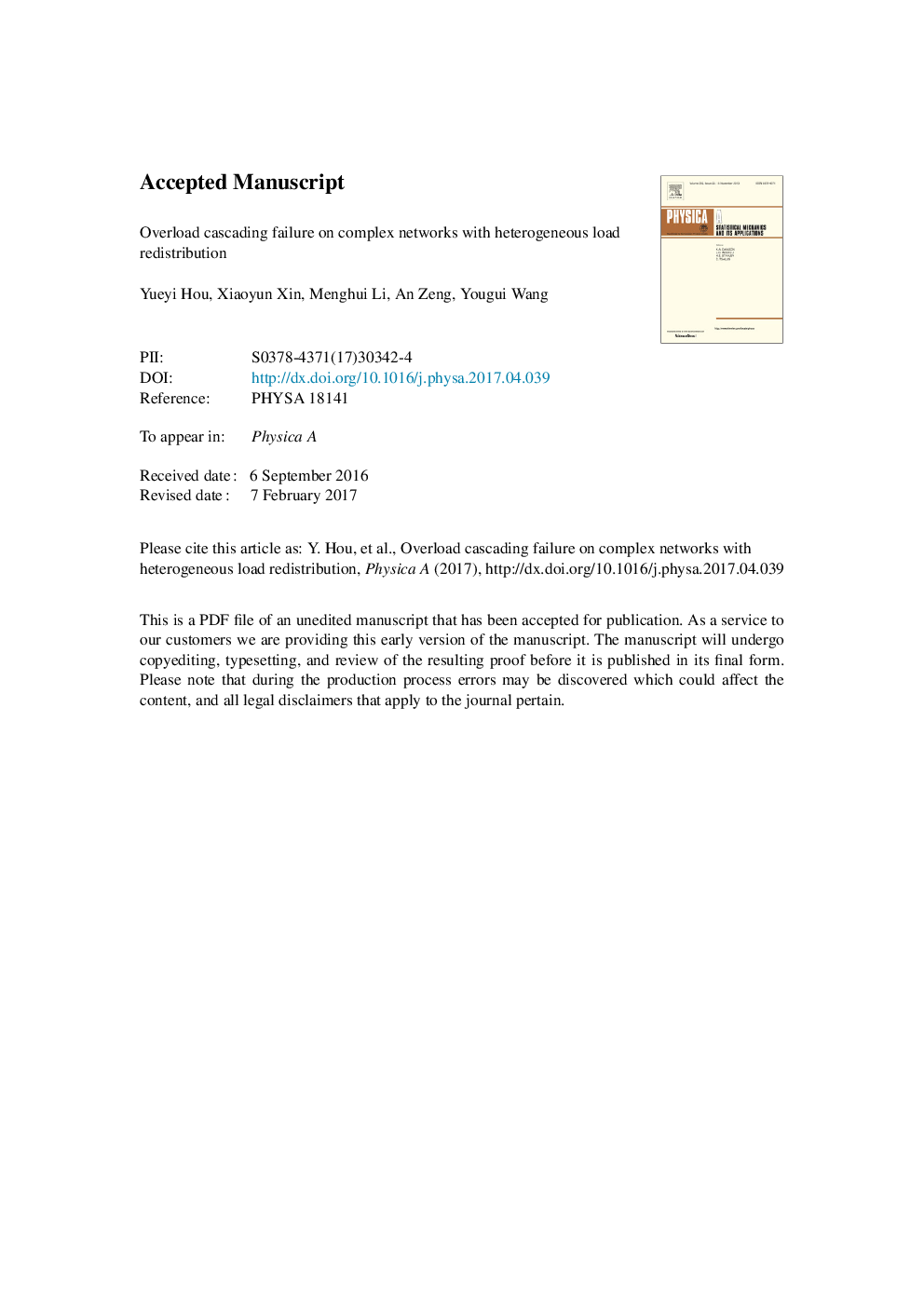| Article ID | Journal | Published Year | Pages | File Type |
|---|---|---|---|---|
| 5102801 | Physica A: Statistical Mechanics and its Applications | 2017 | 9 Pages |
Abstract
Many real systems including the Internet, power-grid and financial networks experience rare but large overload cascading failures triggered by small initial shocks. Many models on complex networks have been developed to investigate this phenomenon. Most of these models are based on the load redistribution process and assume that the load on a failed node shifts to nearby nodes in the networks either evenly or according to the load distribution rule before the cascade. Inspired by the fact that real power-grid tends to place the excess load on the nodes with high remaining capacities, we study a heterogeneous load redistribution mechanism in a simplified sandpile model in this paper. We find that weak heterogeneity in load redistribution can effectively mitigate the cascade while strong heterogeneity in load redistribution may even enlarge the size of the final failure. With a parameter θ to control the degree of the redistribution heterogeneity, we identify a rather robust optimal θâ=1. Finally, we find that θâ tends to shift to a larger value if the initial sand distribution is homogeneous.
Keywords
Related Topics
Physical Sciences and Engineering
Mathematics
Mathematical Physics
Authors
Yueyi Hou, Xiaoyun Xing, Menghui Li, An Zeng, Yougui Wang,
